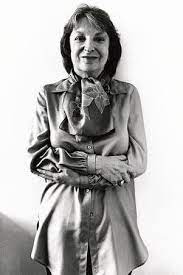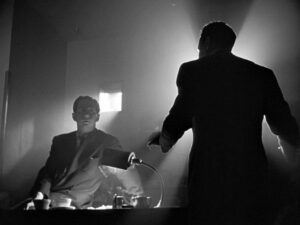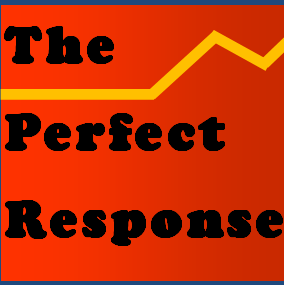Informed criticism is clearly diminished as a cultural mainstay, in part because we have made it so much easier to produce and distribute simulations of cultural products.
This is an era in American life where the young seem as interested in becoming content creators than content appreciators. To be sure, this is a broad and inexact distinction. But it is clear that a large segment of younger Americans today are ready to self-identify as musicians, songwriters, filmmakers, writers or audio producers, without much experience or training. The results are usually predictably modest: unplanned videos, under-edited and “published” books, magazine-inspired blogs, or derivative music produced in front of a computer. Without doubt, serendipity has always had a place in producing wonderful new talent. But it is also true that more of us want to count ourselves as being a part of the broad media mix made possible with nearly universal internet access. It’s now hardly surprising to meet a middle schooler who edits their own videos or, after a fashion, curates their own web presence. As You Tube demonstrates, self-produced media content is unmistakably popular.
If this first quarter of the new century is the age of the content producer, it seems that—broadly speaking—the last half of the previous century was an era for witnessing and reflecting on breathtaking talent. The decline of this impulse is a loss. An appreciator is more than a consumer. These are folks with an understanding of the history and conventions of a form, with an equal interest in exploring how new works can build on and stretch the most stale of cultural ideas. The best work of appreciators can be cautionary, encouraging, or fire us with the enthusiasm that comes with new insights. Productive analysis can help us fathom what we do not yet understand.

In the previous century, critics and essayists of all kinds of art were ubiquitous. Periodicals and big city newspapers routinely published considered assessments of trend-setters in popular culture, fiction, television, theater and film. Some combined their pieces in book-length studies of the period that are still worth reading. Michael Arlen and Neil Postman wrote insightful analyses of news and entertainment television. Pauline Kael and Roger Ebert were among many popular reviewers producing novel assessments of films and the film industry. They were matched by music critics like Michael Kennedy, Dave Marsh, Gene Lees and Donal Hanahan, who provided appraisals of performers and performances. Their counterparts in the visual arts included writers like Robert Hughes, Walter Benjamin, and Jerry Saltz: all exploring the vagaries of talent and caché in that enigmatic world.
Among countless publications, readers poured over this criticism in the pages of The Dial, The New Yorker, Gramophone, Paris Review, Harpers, The Atlantic, New York Review of Books and Rolling Stone. And no self-respecting daily newspaper considered itself complete without its own music and film critics. Bigger city papers also added performance reviews of dance, along with the assessments from urbanists of a city’s newest additions to its skyline.
Even beyond obvious and daily samples of book and theater reviews in many Twentieth Century news outlets, there was an entire world of appreciators with appetites for reconsidering the rivers of culture that came from distant headwaters. For example, Gramophone was founded in 1923 by the Scottish author Compton Mackenzie, who understood that there was an appetite for essays about the composers and performers captured in the new electrical recordings of the time. He proved the unlikely proposition that many wanted to read about music almost as much as they wanted to hear it.
Criticism has Diminished as a Cultural Mainstay

With video and digital media still mostly in the future, Americans in the first half of the century, had the time and the will to know the backstories of the cultural products of the day. Indeed, some writers like Norman Mailer, Susan Sontag, Joan Didion and Janet Malcom became intellectual thought leaders. They helped to explain what artistic mastery should look like. And they had the counterparts in a range of academic thinkers—T.W. Adorno, David Riesman, Marshall McLuhan and Kenneth Burke, for example—whose deeper cultural probes would soak into the fabric of the nation’s undergraduate curriculum. Sampling the output of so many professional appreciators would keep liberal arts students preoccupied for years, and sometimes forever.

To be sure, our interest in the understandings the nation’s cultural output has not vanished. But criticism is clearly diminished as a cultural mainstay, in part because we have made it so much easier to produce and distribute simulations of cultural products. I use the word “simulations” because the impulse to be a content producer often bypasses the intellectual labor that comes in value-added art. So many today proceed without a grounding in the canons of a particular form: its histories, possibilities, and innovators. I suspect the desire to be an immediate practitioner in a realm that is barely understood is usually fed by the promise of fame. The result, as my colleagues in film sometimes lament, is that students want to be producers of video stories before the have considered the durable conventions of narrative: for example, the norms of a written screenplay, or how this first written map is converted into the visual “language” and grammar of film. To cite a specific case, it would be useful for a young filmmaker to know how cinematographer Greg Toland used light and shadow to create the unmistakable visual palette of Citizen Kane (1941), or how Steven Spielberg and John Williams exploited the tricky business of musical underscoring to leave audiences suitably terrified by Jaws (1975).
In our schools and colleges, the equipment to make art is frequently made available to students who have only rudimentary understandings of how they might be used. The youthful conceit that progress is made by setting aside what has come before is mostly an excuse to avoid the work of contemplation that creates competence and a lasting passion for an art form.
![]()


 Writing in roller-coaster 1960s, the sharp-eyed Joan Didion noted that our national convulsions over Vietnam and racial violence meant that “the center will not hold.” The years of the Trump interregnum have similarly soured the nation on many within it. Too many seem to have strayed far from the norms of institutions they represent. Consider the former Secretary of Education’s outrageous preference for private over public schools, or the lies the Attorney General now admits he told to placate the President, or the President’s own dissembling regarding the pandemic or the 2020 election. And then there are the everyday norm violations that traditionally fill our news sites: instances of sexual predation from religious, business and school officials, violence against innocents by deranged and armed people beyond the reach of limited social services, or police who pose a threat to those they are supposed to protect. All feed the threatening rhetoric of armchair revolutionaries broadcasting their weirdness on social media sites. Even seditionists are sometimes normed, like the 18-members of the Texas congressional delegation who have paid no price for trying to nullify the votes of citizens in four other states.
Writing in roller-coaster 1960s, the sharp-eyed Joan Didion noted that our national convulsions over Vietnam and racial violence meant that “the center will not hold.” The years of the Trump interregnum have similarly soured the nation on many within it. Too many seem to have strayed far from the norms of institutions they represent. Consider the former Secretary of Education’s outrageous preference for private over public schools, or the lies the Attorney General now admits he told to placate the President, or the President’s own dissembling regarding the pandemic or the 2020 election. And then there are the everyday norm violations that traditionally fill our news sites: instances of sexual predation from religious, business and school officials, violence against innocents by deranged and armed people beyond the reach of limited social services, or police who pose a threat to those they are supposed to protect. All feed the threatening rhetoric of armchair revolutionaries broadcasting their weirdness on social media sites. Even seditionists are sometimes normed, like the 18-members of the Texas congressional delegation who have paid no price for trying to nullify the votes of citizens in four other states.